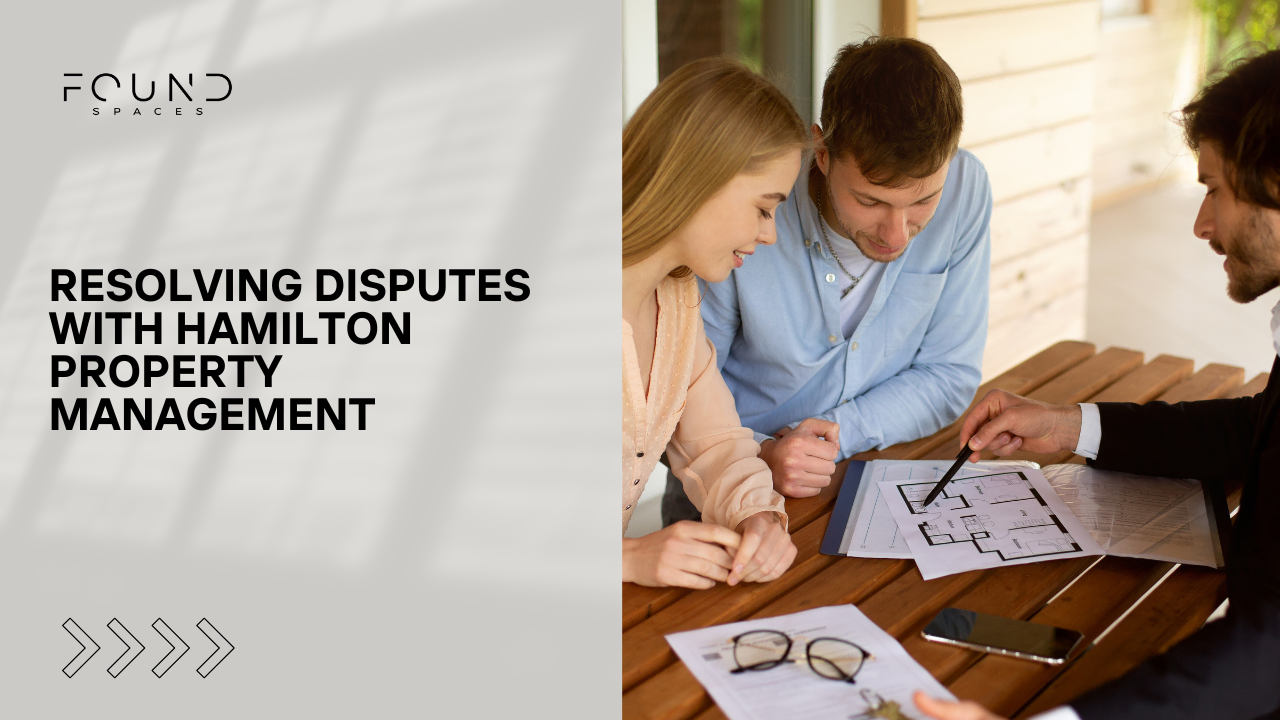Dealing with property disputes can be stressful for both tenants and landlords. Misunderstandings and disagreements are common, but knowing how to handle them makes a big difference. For those involved with Hamilton property management, understanding how to resolve common disputes is essential.
Most disputes arise from issues like maintenance delays, rent increases, or unclear lease terms. Small problems can quickly become big headaches if not dealt with promptly and properly. Learning effective communication and knowing your rights can help resolve these disputes before they escalate.
Having a good relationship between tenants and landlords is important for a smooth living situation. By understanding common problems and how to address them, you create a better environment for everyone involved. This guide will help you navigate through disputes efficiently, ensuring your property remains a peaceful place to live.
Understanding Common Disputes with Property Management

Disputes between tenants and landlords in Hamilton property management services often stem from a few common issues. Recognizing these early can help in resolving them more effectively.
- Maintenance and Repairs: One of the most common disputes is about maintenance and repairs. Tenants may feel that their requests for repairs are ignored or delayed. On the other hand, landlords might argue about the cost and necessity of certain repairs, leading to disagreements.
- Rent Increases: Another frequent issue is rent increases. Tenants often resist rent hikes, especially if they believe them to be unfair or too high. Landlords may need to raise rents to cover increased property costs or improvements, causing tension.
- Lease Terms and Conditions: Misunderstandings or disputes can arise over lease terms. This can include disagreements about pet policies, subletting, and property use. When lease agreements are unclear or not thoroughly understood, conflicts are more likely to occur.
- Security Deposit Issues: Security deposits can also be a source of conflict. Tenants may feel that deductions from their deposits are unfair or not justified. Clear communication about what the deposit covers and proper documentation can help prevent these disputes.
- Noise and Neighbour Complaints: Noise complaints and issues with neighbours are also common. Tenants may complain about loud neighbours, while landlords may have to address these issues to maintain peace and order.
By understanding these common disputes, both tenants and landlords can be better prepared to address and resolve them in a timely manner.
Effective Communication Strategies
Good communication is key to resolving disputes in Hamilton property management. Here are some effective strategies to improve communication between tenants and landlords:
- Stay Professional: Always communicate professionally and respectfully. Avoid letting emotions drive conversations. Staying calm and collected helps in discussing issues without escalating tensions.
- Regular Updates: Landlords should keep tenants updated on any planned maintenance, changes in property rules, or rent increases well in advance. This transparency helps to build trust and avoid surprises.
- Listen Actively: Both parties should practice active listening. This means giving full attention, acknowledging the other party’s concerns, and responding carefully. It shows respect and a willingness to resolve issues.
- Clear Documentation: Having clear, written documentation of all agreements, repairs, and communications can help prevent misunderstandings. Both parties should keep copies of important documents and correspondence.
- Use Multiple Communication Channels: Using different communication methods like emails, phone calls, and face-to-face meetings can ensure that messages are received and understood. Some discussions are better handled in person, while others may require written records.
- Set Boundaries: Setting clear communication boundaries, such as specific times for contact, can help avoid inconvenience and frustration. Both parties should respect these boundaries.
- Seek Mediation: For ongoing disputes, consider seeking mediation. A neutral third party can help facilitate better understanding and agreements between tenants and landlords.
Implementing these communication strategies can help in addressing conflicts early and maintaining a positive relationship between tenants and landlords.
Legal Rights and Responsibilities for Tenants and Landlords
Knowing the legal rights and responsibilities of both tenants and landlords in Hamilton property management is crucial for avoiding disputes. Understanding these laws promotes fair treatment and helps resolve conflicts effectively.
Tenant Rights
–Right to a Safe Living Environment: Tenants have the right to a safe and habitable living space. Landlords must ensure that the property meets basic health and safety standards.
– Right to Privacy: Tenants have a right to privacy. Landlords must provide proper notice, usually 24 hours, before entering the rental unit, except in emergencies.
– Right to Fair Rent: Rent increases should comply with the legal guidelines and require proper notice. Tenants can dispute unfair rent hikes through the appropriate governing bodies.
Landlord Responsibilities
– Provide Maintenance and Repairs: Landlords must address maintenance issues promptly. Neglecting necessary repairs can lead to significant problems and legal consequences.
– Respect Tenant Rights: Landlords should respect tenants’ rights to privacy and fair treatment. Entering the property without notice can breach this right and lead to disputes.
– Follow Legal Procedures: Any actions like evictions must follow the legal process. Illegal evictions can result in penalties and strained relationships.
Tenant Responsibilities:
– Pay Rent on Time: Tenants must pay rent by the due date. Late payments can lead to penalties and legal action from landlords.
– Maintain Property Condition: Tenants should keep the property in good condition, avoiding damage beyond normal wear and tear. This helps in receiving the security deposit back at the end of the lease.
– Follow Lease Terms: Adhering to the terms of the lease agreement is essential. This includes any rules set by the landlord, such as pet policies or noise regulations.
By understanding these legal rights and responsibilities, both tenants and landlords can foster a respectful and legally compliant living environment.
Steps to Take When Disputes Arise

When disputes arise in Hamilton property management, taking the right steps is key to resolving them quickly and fairly. Whether you’re a tenant or a landlord, following these steps can help address conflicts effectively.
- Identify the Problem: Clearly identify the issue at hand. Understanding the root cause of the dispute allows both parties to address it accurately and find a solution.
- Communicate Openly: Open communication is crucial. Discuss the issue calmly and professionally with the other party. Explain your perspective and listen to theirs as well.
- Document Everything: Keep detailed records of all communications, agreements, and incidents related to the dispute. Documentation can serve as evidence if the conflict escalates.
- Seek Mediation: If direct communication doesn’t resolve the issue, consider mediation. A neutral third party can help facilitate a fair resolution through discussions.
- Know Your Legal Options: Familiarize yourself with your legal rights and options. If the dispute cannot be resolved through communication or mediation, knowing the legal procedures can help in taking the appropriate steps.
- File a Formal Complaint: For severe disputes, tenants can file a complaint with the appropriate housing authority or landlord-tenant board. Landlords can also seek legal advice or take the matter to small claims court if necessary.
- Follow Up: After taking initial steps, follow up to ensure the issue is fully resolved. This could involve making sure repairs are completed or checking that agreed-upon terms are implemented.
By following these steps, tenants and landlords can address disputes effectively, maintaining a positive and cooperative relationship.
Resolving disputes in Hamilton property management requires a clear understanding of common issues, effective communication, knowledge of legal rights, and a structured approach when conflicts arise. By identifying problems early, communicating openly, and following legal guidelines, tenants and landlords can resolve conflicts smoothly. Proper documentation and, if necessary, mediation ensure fair resolutions while maintaining respectful relationships.
Dealing with property disputes doesn’t have to be stressful. By being proactive and informed, you can enjoy a smooth and worry-free living experience. For expert help in managing your property and addressing any disputes, contact Found Spaces. Our team is dedicated to providing top-notch property management services that make your life easier. Let us handle the complexities so you can focus on enjoying your home.




